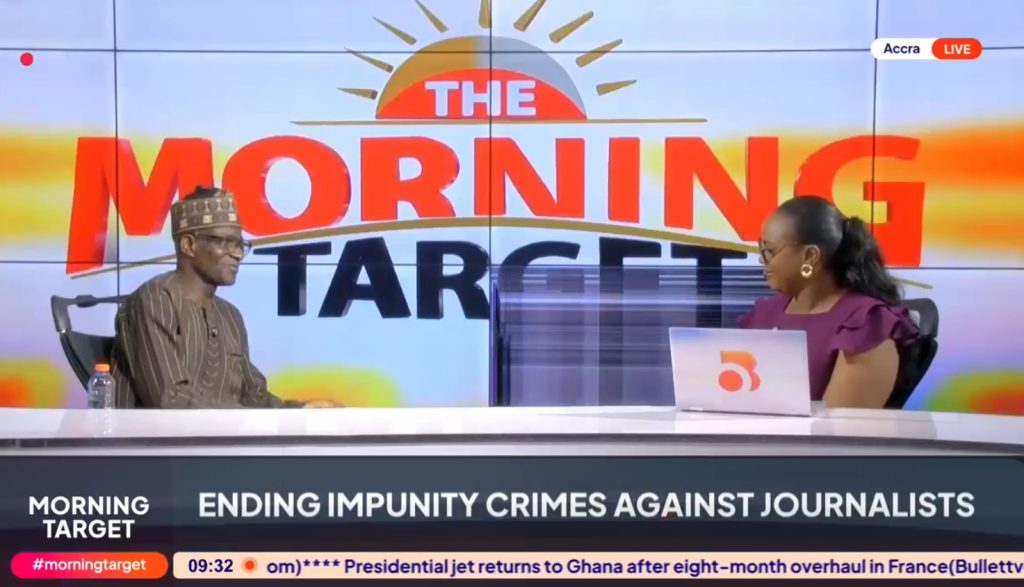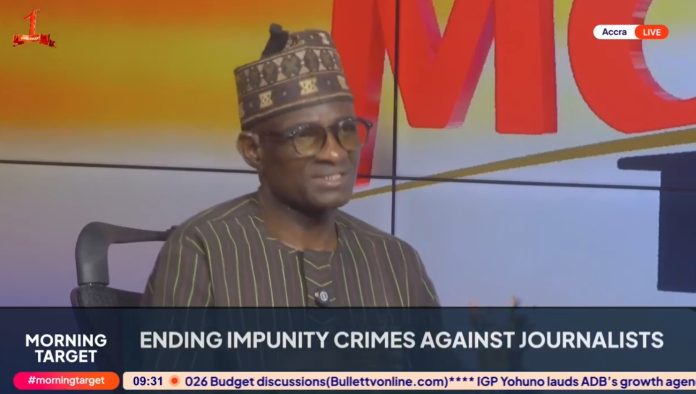A lecturer at the University of Applied Management says Ghana may have secured justice in the murder of investigative journalist Ahmed Hussein-Suale if the perpetrators were not politically connected.
He made the remark on Bullet TV’s Morning Target, hosted by Selikem Acolatse-Apaloo on Ending Impunity Against Journalists.
Dr Mazuk, a former journalist himself, said the climate for media practice today is “better in comparison, but still unsafe,” stressing that three decades into constitutional rule, journalists should not be working under fear.
He warned that a blend of political impunity, weak criminal justice systems, and societal misconceptions about journalism continues to endanger journalists in Ghana.
According to him, many Ghanaians wrongly view journalists as “automatic enemies of society,” a mindset he says thrives in corrupt environments where wrongdoers fear exposure. Culturally, he added, the public often mistakes responsible journalism for gossip, failing to appreciate the rigorous verification and accountability processes behind the profession.

Politically, Dr Mazuk lamented what he called a persistent “culture of partisan arrogance,” where loyalty to party colours shields offenders from accountability. He argued that this environment fuels attacks on journalists and delays justice, as seen in the Suale case.
He also faulted the country’s justice system for enabling impunity. “The weaker the criminal justice system, the stronger the culture of impunity,” he said, urging authorities to enforce existing laws without fear or favour.
On the role of media houses, he stressed the need for professional safety training, better remuneration, and stronger institutional standards to protect journalists from avoidable risks. He also called on the Ghana Journalists Association (GJA) to show “higher standards of responsible leadership” in pushing for justice.
Dr Mazuk concluded that while journalism today enjoys more freedom than during Ghana’s era of criminal libel and military rule, professionalism, bravery, and strong institutions remain essential if the country is to guarantee the safety of its journalists.
By Ebenezer Madugu






